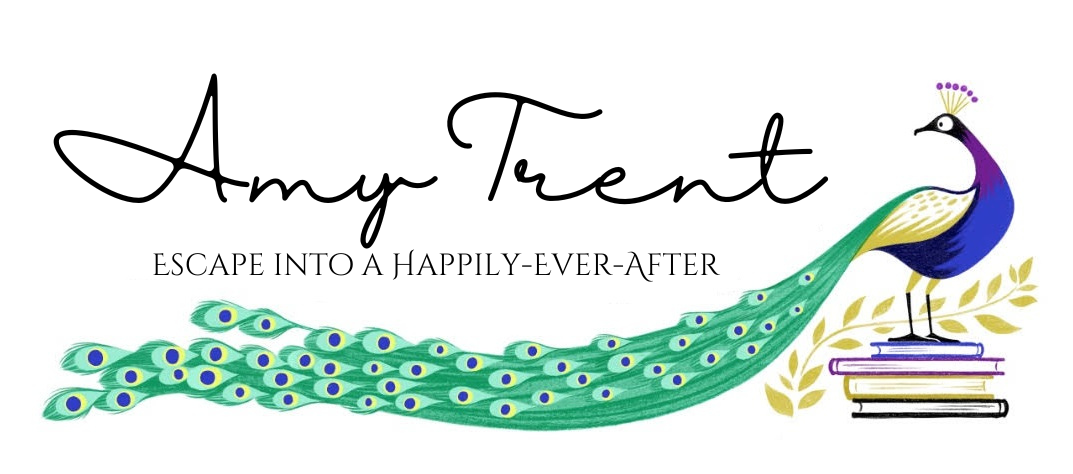Book clubs are fun! Here are some discussion questions to consider should you want to gab about My Cosplay Escape with your bookish friends. Note: some of the questions at the bottom have spoilers. Read at your peril.
GENERAL DISCUSSION QUESTIONS
- My Cosplay Escape is a rom-com that pulls inspiration from the hidden identity trope (The Scarlet Pimpernel is a classic example of this trope in action. The film You’ve Got Mail is one of Amy’s favorite rom-coms that plays with this trope. And of course, Shakespeare had a lot of fun with hidden identity—Twelfth Night, The Comedy of Errors, etc.). The hidden identity trope shows up frequently across genres and is common to superhero stories. Amy thinks the hidden identity angle is what make superheroes so fun and popular. Do you agree? Why do you think the hidden identity trope has such staying power across genres?
- In addition to hidden identity, there are many beloved tropes when it comes to rom-coms. Enemies to lovers, friends to lovers, fake dating, love triangles, second chance romance, marriage of convenience, forced proximity (Audrey Hepburn and Peter O-Toole stuck in a broom closet in How to Steal a Million is Amy’s favorite example of this one), and workplace romance being a few of the most beloved. Which trope do you feel has the most to say about our day and age? If you were going to write a contemporary rom-com, which trope would you play with and why?
- Amy was heavily influenced by her hometown and feels like My Cosplay Escape only makes sense set in San Diego. In a similar way it is hard to imagine other famous rom-coms like Sleepless in Seattle or Roman Holiday without the backdrop of their respective cities. What is it about some rom-coms that make this the case where as others (Shakespeare’s Much Ado About Nothing or Jane Austen’s Pride and Prejudice) can be retold and enjoyed in virtually any setting?
- Cosplay, which Amy describes as the act of exploring a fandom by dressing as a beloved character, is a popular pastime of convention goers, yet cosplaying is also common for movie premiers, parties, and theme park adventuring. No story or genre is off limits. My Little Pony, Disney, Superheroes, literature, BBC, etc. is all fair play. What is it about a fandom that makes even adults want to play dress-up? Is the rise of cosplay linked to social media or some other eccentricity of modern life?
- Amy has always been a quiet fan of comics/graphic novels and has especially enjoyed learning about the tools and tricks employed to enhancing the visual storytelling experience. Throughout My Cosplay Escape, Amy uses comicbook terminology and references to describe important feelings and moments and deepen her protagonist’s Point of View (POV). Example:
- “I hear the flip, flip, flip of pages, and my world starts to segment into panels and speech bubbles.”
- “Sounds are starting to segment themselves into onomatopoeia.”
- “Burst lines, the gorgeous ones that need both ink and a colorist, radiate from his smile.”
- “I may not be seeing Ben-Day dots in my waking hours, but you can’t take the comics out of the girl.”
- Many of Amy’s favorite authors have successfully played with POV in similar (and more impressive) ways. At what point does playing with character through POV feel gimmicky verses genuine? One of Amy’s editors felt she went too far with the creative swears (she dialed it back, but Shirley Temples, maybe she was right?). What do you think?
SPOILER QUESTIONS
- Miscarriage, and its accompanying loss and grief, is explored in My Cosplay Escape. Amy has noted that when she was a younger mommy and in the middle of the hard work of getting her family present and accounted for, she did not come across many books that explored miscarriage. Friends rarely spoke about miscarriages, and when they did shame and self-blame were often woven into the narrative of loss and grief. When Amy was the same age as her protagonist, Sarah, she had a biology professor point out in a lecture that the very name “miscarriage” suggests blame. Her professor spoke bluntly that this was a horrific term for a biological process that is completely outside the mother’s control. No matter the circumstances of a miscarriage it is a real loss. Grief is a necessary part of loss. Understanding that grief, coming to terms with the loss, is what communities should do together. Is it what books should do too? Should discussions of miscarriage be more common in our culture?
- For much of the story, Sarah worries about how her mother will judge her for her miscarriage. Yet, when she confides in her mom there is only love, compassion, and understanding. Do we need to see love and acceptance modeled in those we love before we can get to love and self-acceptance for ourselves? How do we acquire the necessary skill of self-compassion?
- Janice, Sarah’s mom, wins Amy’s favorite character award. She was the most fun to write, and is based on Amy. Once upon a birthday, Amy’s hubby was nearly killed in a car accident. After Mr. Trent was out of the woods, and everyone knew his recovery would be full if a little long, Amy’s mom told her, “When you’re ready, you should write about this.” Amy did. She wondered what her life would look like if she had become a single mama, with no Mr. Trent to stop her from all the zero waste, thrift store dives, and juice fasts. Thankfully, Mr. Trent is alive and well, and Amy only occasionally juices piles of grapefruit and beets that she alone enjoys. What quirks of yours would you give to a character? What events from your life would inform that character’s story?
Do you have any questions you’d add to a book club discussion of My Cosplay Escape? Drop them in the comments below. Happy reading!

